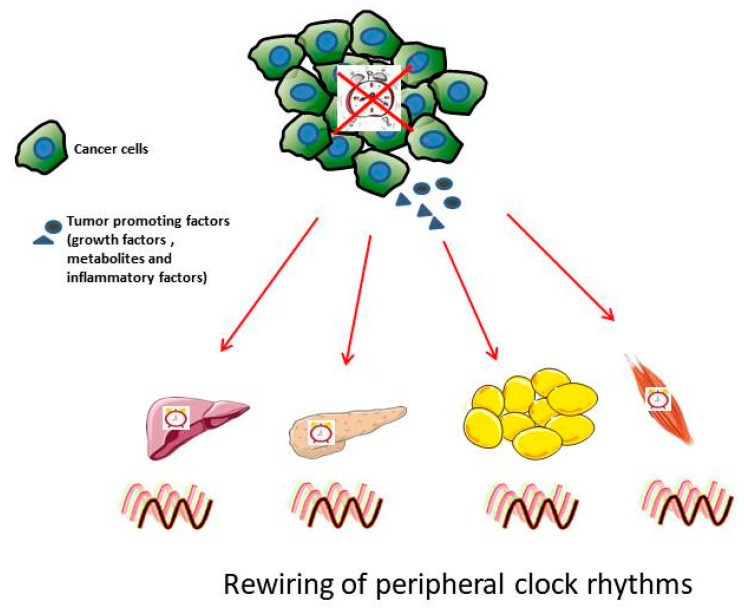Figure 2.
Cancer affects peripheral clock rhythms. Cancerous cells have disrupted circadian rhythms that promote excessive generation of tumor-promoting factors. These tumor-promoting factors, i.e., growth factors such as Transforming growth factor β (TGFβ), and fibroblast growth factor (FGF); inflammatory factors, chemokines and cytokines; metabolic waste byproduct such as lactate are secreted into the blood and travel to the nearby healthy peripheral tissues such as liver, pancreas, adipose tissue and muscle resultingin disturbed rhythmicity in peripheral clocks and its downstream pathways.

